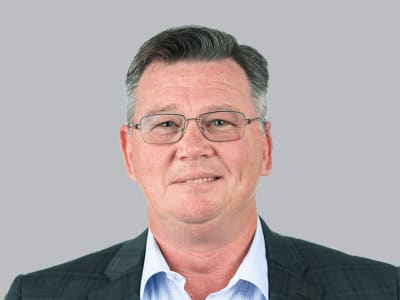For over a century, in-person consultations have been the norm in the healthcare industry.
A steady stream of patients, with appointment times varying from 10 to 30 minutes, have enabled medical practitioners to predict with some certainty how many patients they will see in a given period.
But has this predictability caused medical practitioners (and medical practices in general) to rest on their laurels – and in turn forego new possibilities in favour of a time-honoured and safe approach?
The events of recent years forced all industries to think outside the box in terms of service delivery and income streams, and healthcare was no different. In less than a year we saw a complete transformation to how patient care was delivered, coupled with a rapid rise in new technologies designed to support a remote health model.
As life returned to (near) normal this year though, a large portion of medical practices appear to have reverted to their comfort zones: sidelining telehealth and emerging tech as “something to think about in the future”.
The growing value of a hybrid approach
While in-person consultations are undeniably essential in the medical field, they are not the be all and end all. Particularly in an age where younger generations see online web searches and medical apps as their new consulting physician, embracing a hybrid approach may be critical to entice them back to established healthcare settings where they can benefit from the expertise and personalised care offered by qualified medical professionals.
For older generations, COVID-19 changed the perception and receptivity of patients across the world – inviting them to challenge long-held assumptions that care could only be delivered with a visit to their local clinic. This sentiment is still ripe in people’s minds, making now a pivotal time for meeting the evolving preferences of a diverse and increasingly tech-savvy demographic.
In addition to the changing wants and needs of patients, many GPs continue to be overwhelmed by patient numbers. They’re working long hours while patients complain of long wait times, and those in regional and rural areas frequently claim that timely medical consults are practically impossible.
Combined, these factors present a golden opportunity for medical practitioners and practice owners to take a hard look at established methods and explore the potential of new models instead.
Food for thought over the holiday break
Here are just some examples of emerging tech we are now seeing in forward-thinking medical practices…
AI-powered telehealth platforms – with features such as automated patient triage, symptom assessment tools, and personalised care plans.
Practice analytics – advanced software that serves up detailed financial and clinical metrics to support better decision making and patient care.
Virtual medical assistants – to manage appointment scheduling, assist with diagnosis, and provide follow up management.
Proprietary medical apps – custom built to meet the specific needs of your practice and patients, and promote closer ongoing engagement.
Remote health monitoring – combining the power of wearable devices with real-time patient oversight (often delivered as a subscription-based model).
These alone provide plenty of food for thought for busy practice owners ready to move beyond the traditional. Especially for medical practitioners who are experiencing burn-out after spending long hours in a clinic setting, a new approach could offer a much-needed change of pace.
With the holidays approaching, why not take the opportunity to consider how you might adopt a hybrid approach that seeks to balance the ways of old with the technology of today? As well as new income streams, you may benefit from increases in efficiency, productivity, and improved patient care.
RSM’s National Health team has decades of collective experience working with medical practice owners to streamline and improve their operations. We can assist with activities such as:
- benchmarking practice performance
- cashflow and budgeting
- evaluating the potential of new technologies
- conducting scenario planning to determine the viability of new revenue streams
We can also connect you with RSM specialists in areas such as tech deployment and cyber security to ensure your practice can confidently embrace and implement your new approach.
FOR MORE INFORMATION
For a free initial discussion, please contact Peter Nicol (National Director, Medical) on (02) 6057 3000.





